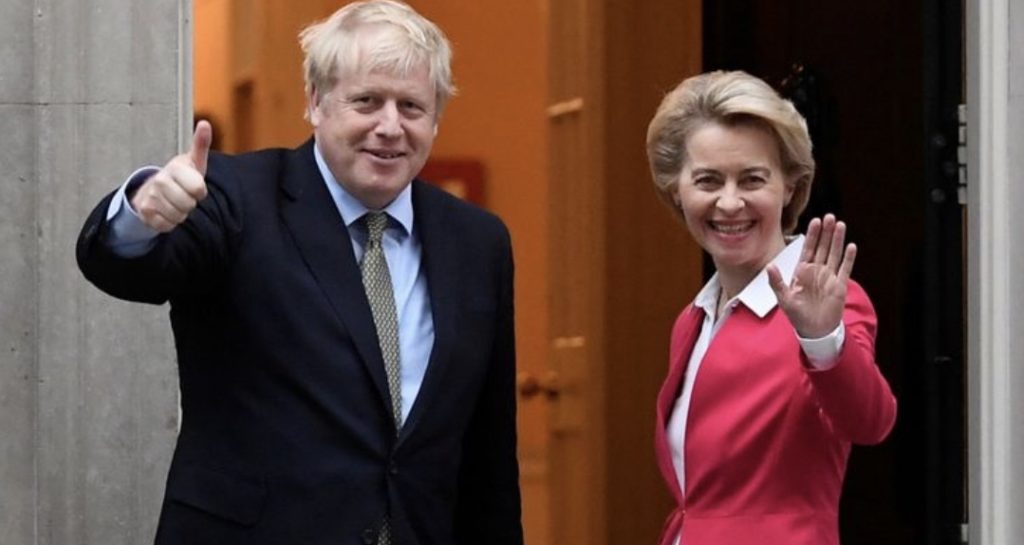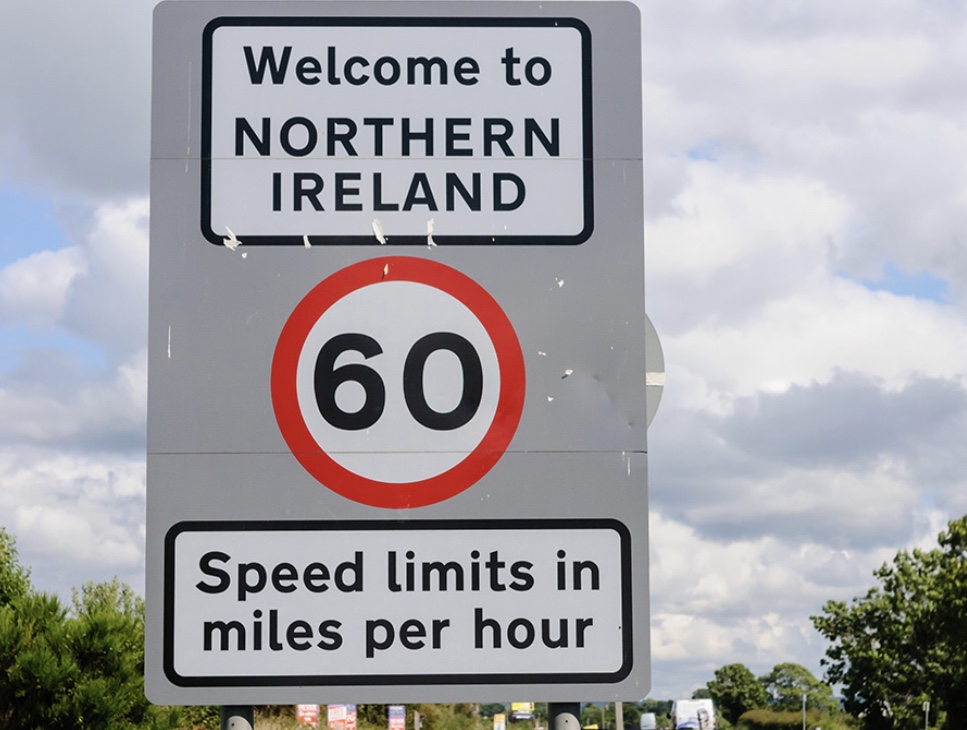A solution for the NI protocol
Read this excellent piece on the NI protocol from Shanker A Singham. I fully agree and supports this view.
From a customs perspective this is possible. There is a landing zone for a solution here.
This is Shankers text:
”On Monday, Boris Johnson will speak to Ursula von der Leyen to see if the UK Prime Minister and EU Commission President can break through the seemingly intractable barriers between the two sides. These include the EU’s insistence that the UK be subject to its state aid rules and other level playing field obligations, fisheries and the Northern Ireland Protocol implementation.

At a higher level, much of this is a philosophical debate about the fundamental nature of the UK’s relationship with the EU. Is the UK to be a truly independent state as Boris Johnson wants, or an associated state, rather like Turkey or the Mediterranean countries, very much a junior partner and rule taker?
While the EU’s insistence that the UK be a subordinate player leads to an inevitable rupture, it is in the area of the implementation of the Protocol (“NIP”) where the UK can act to solve the issue itself. The UK would obviously like the NIP superseded in a free trade agreement; but it must implement the former anyway, even if the latter doesn’t happen.
On this implementation, the EU maintains that the UK is violating the terms of the Withdrawal Agreement and the NIP itself by not acting or not acting fast enough. The parties differ in their legal interpretation of the NIP. The UK has issued a Command Paper and continues to meet their EU counterparts in the negotiating Joint Committee.
Implementation of the NIP matters a lot. It matters to both communities, nationalist and unionist, in Northern Ireland. It matters to traders who regularly ply their trade across the Irish Sea route – Belfast-Liverpool, Belfast-Cairnrhyn, and also the Dublin-Holyhead route, which carries much Northern Ireland-Great Britain trade.
And because it is important to preservation of the Good Friday Agreement and the peace in Northern Ireland, it matters also to many of our trading partners, especially to the Americans and their substantial and powerful Irish-American lobby groups.
We can implement the NIP in a way that complies with the law. But, first, both parties need to recognise some essential elements of what was originally agreed – and not what they wish was agreed.
There are three fundamental principles which must be honoured and which are in tension. First, whatever we do, the Belfast Agreement and the peace process which rests on it must be safeguarded. Second, whatever the UK comes up with, it must protect the integrity of the EU’s Customs Union and Single Market. Finally, it must recognise that Northern Ireland is in the UK customs territory. It is not in the EU customs territory, nor does it form a new customs territory all of its own.
In order to satisfy the first obligation, it must expressly be recognised by both parties that there are two communities in Northern Ireland. Unionists and nationalists. Both must be happy with the outcome in order for the Belfast Agreement and the delicate peace process to hold.
Just as there is no border between Ireland and Northern Ireland, there must be unfettered access East-West as well. This means that there can be no export declarations (except in very limited circumstances where EU membership of an international treaty is implicated), for goods moving from Northern Ireland to Great Britain, and there must be no customs declarations (export or import) for goods moving between Great Britain and Northern Ireland.

The UK should put a plan together that satisfies these objectives, and recognises that regulatory checks on Sanitary and Phytosanitary (SPS) measures can be done in facility. Once you have eliminated the major traders who have high visibility into their supply chains, a modest additional infrastructure at border control posts can handle the additional SPS checks that need to be done on a spot check basis.
This plan should achieve the goal of protecting the EU’s Single Market and Customs Union better than at external EU borders (where there is significant smuggling). The EU will have to accept such a plan, because the alternative is a border between Ireland and Northern Ireland, or one between Ireland and the EU-26, both of which would be catastrophic for Ireland.
In the absence of such a public plan, backed by concrete trials, the EU is quietly trying to win back territory it lost in the negotiation. Applying the European Union’s customs code to Northern Ireland for movements between Great Britain and the EU would be a very far cry from saying that Northern Ireland is in the EU customs territory.
Like it or not, the EU agreed to two customs territories on the island of Ireland. By agreeing that Northern Ireland is in the UK customs territory and not forming some separate customs territory of its own, the EU has to accept that it is up to the UK to figure out the best way of achieving one of the principle aims of the NIP, which is to protect the EU Single Market and Customs Union to a level that is realistic and matches the ambition on other EU borders.
There is a landing zone for a solution here.
But it is true that time is running out, and both parties need to move off the starting blocks. The people of Northern Ireland are depending on them, as is the future of the United Kingdom’s precious union. Given the barrier that this poses to an EU-UK free trade agreement as a whole, many livelihoods rest on a satisfactory solution being found – not least those of farmers in Ireland, France, Bavaria and Northern Italy, for whom no trade deal would be catastrophic”.

You must be logged in to post a comment.